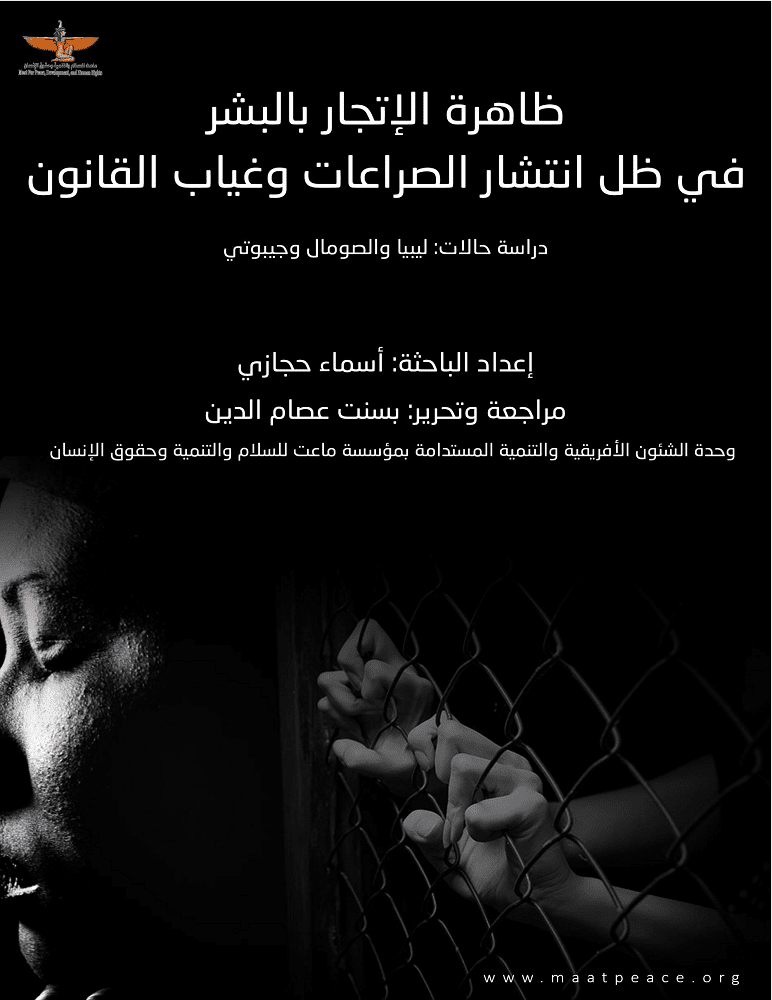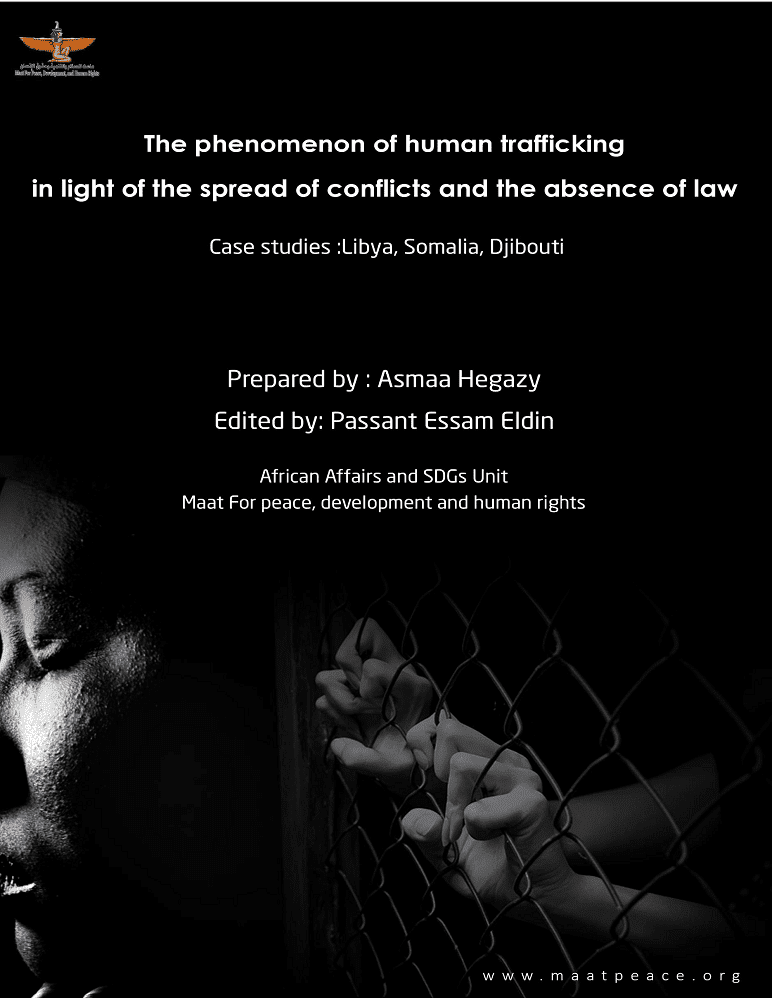"Okeil": Mercenaries and extremist groups are the main cause behind the rise of human trafficking in Libya
“Hegazy”: Sexual slavery phenomenon exacerbates in East African countries as a result of the phenomenon of human trafficking
Maat for Peace, Development and Human Rights stated that Africa is the largest and most extensive arena that includes the most dangerous forms of human trafficking in the world, due to the different forms of violence and rampant disputes; such as the tribal clashes on the one hand, and the spread of terrorist and extremist groups on the other hand, and the accompanying violations to the rights of civilians in the first place, in addition to the weak legal and legislative frameworks that fail to deter the practicing of this phenomenon.
In light of the continuation and escalation of the ongoing conflict in Africa in several regions, most African countries are witnessing widespread human trafficking, and this is due to the ongoing conflicts in most countries, which pushes entire communities to fall under the category of “refugees”, and thus it becomes easy to select the most vulnerable within refugee camps as easy prey for human traffickers.
All this is highlighted in a human rights study issued by Maat for Peace, Development and Human Rights entitled “Human Trafficking in Light of Widespread Conflicts and Absence of Law”, with Libya, Somalia, and Djibouti as Case Studies."
The study showed the conditions of human trafficking and the exacerbation of this phenomenon in the countries under study, especially those carried out by mercenaries and armed groups, particularly in light of the wars that those countries are witnessing, the legal attitude towards this inhuman phenomenon, the reasons that led to the spread of this phenomenon, and its accompanying human rights conditions in these countries.
Commenting on the study, Ayman Okeil, president of Maat for Peace, Development and Human Rights, said that the political and security crisis and the continued flow of mercenaries and foreign forces in the country, along with the absence of law and the spread of insecurity, made Libya a fertile environment for the spread of human trafficking. Okeil recommended that all Libyan parties expedite the establishment of peace rules by completing the road map, as well as expediting the expulsion of Libyan mercenaries and all extremist elements, in a way that improves the human rights conditions of the Libyan people in the first place.
Asmaa Hegazy, on the other hand, a researcher at the African Affairs and Sustainable Development Unit at Maat, said that the use of women and the high incidence of conflict-related sexual violence in Somalia has become a very worrying phenomenon, particularly those carried out by the Mujahideen Youth Movement in the framework of human trafficking and sexual slavery. The researcher pointed out that the situation is getting worse, especially in light of the involvement of elements of the Somali National Army in at least 25 incidents this year. The researcher recommended the governments of African countries to review, finalize, and implement the expanded national action plan, and continue to coordinate with the civil society to spread awareness of combating trafficking at the national level.
Notably, Africa is among the issues of concern to Maat for Peace, Development and Human rights, being a member of the General Assembly for the Economic, Social & Cultural Council (ECOSOCC) of the Africa Union (AU). Moreover, Maat serves as an Observer in The African Commission on Human and People’s Rights (ACHPR) and as a Northern African Coordinator in the major Non-Governmental Organizations (NGOs) in Africa of the United Nations Department of Economic and Social Affairs (UN DESA).
#Maat_Around_Africa
![]()
 |
 |











